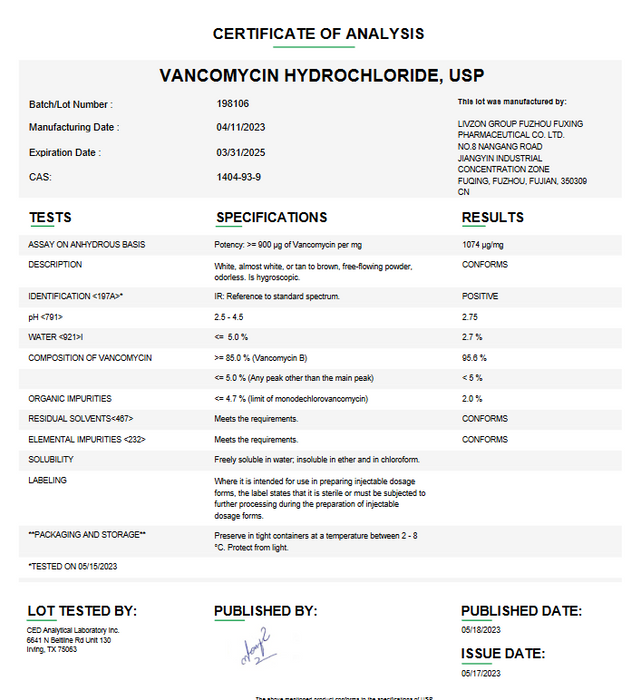Vancomycin Hydrochloride USP For Compounding (API)
(Note: We don’t Fill Personal Prescriptions)
How to Order:
Vancomycin Hydrochloride USP for Compounding (API) is an active pharmaceutical ingredient used to formulate customized medications for treating serious bacterial infections, particularly those caused by gram-positive bacteria. It is frequently employed in hospital settings to combat infections like MRSA (methicillin-resistant Staphylococcus aureus) and colitis due to resistant strains. As a powerful antibiotic, vancomycin works by inhibiting bacterial cell wall synthesis. Compounding allows pharmacists to adjust dosages and formulations to meet individual patient needs, optimizing therapeutic efficacy and minimizing side effects.
Vancomycin Hydrochloride USP is an active pharmaceutical ingredient (API) used in the production of antimicrobial drugs. It is a glycopeptide antibiotic that is primarily used to treat infections caused by Gram-positive bacteria, especially those that are resistant to other antibiotics such as methicillin-resistant Staphylococcus aureus (MRSA). Vancomycin HCL is often administered intravenously and works by inhibiting the growth and multiplication of bacteria. It is considered a last-resort antibiotic and is primarily used for severe infections or when other antibiotics have failed. The USP designation indicates that it meets the standards set by the United States Pharmacopeia, which ensures the purity, strength, and quality of the API.
Vancomycin Hydrochloride USP for compounding is an antibiotic medication that is used for compounding preparations to treat bacterial infections. It is specifically used for severe or life-threatening infections caused by certain bacteria that are resistant to other antibiotics. This medication works by inhibiting the growth and reproduction of bacteria. It is commonly used for skin and soft tissue infections, pneumonia, and infections of the bloodstream. Vancomycin Hydrochloride USP for compounding is typically reserved for use when other antibiotics have been ineffective or have caused adverse reactions.
CAS Number: 72-18-4


